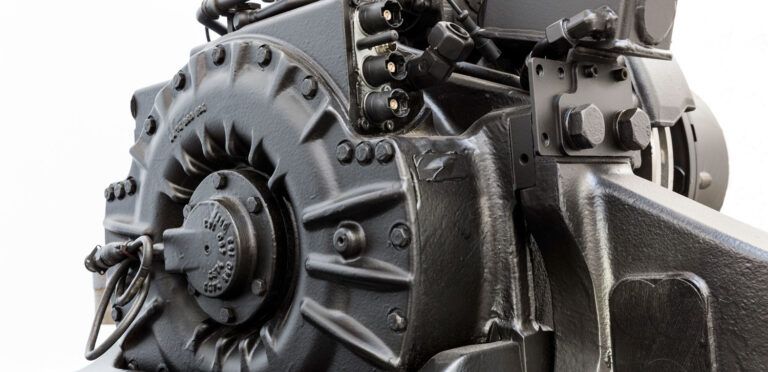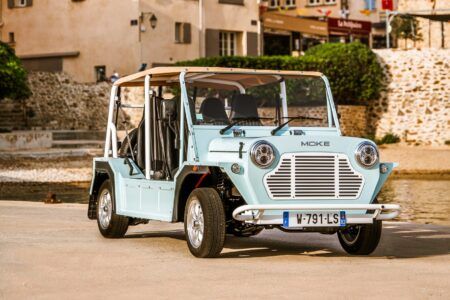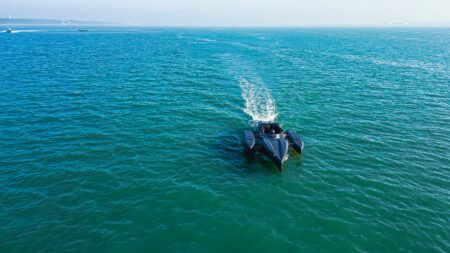Mercedes-Benz has unveiled the new eCitaro – an all-electric city bus.
Developed from the OEM’s Citaro bus platform, the electric version of the vehicle uses a new thermal management system utilizing never-before used components, as well as a modular battery and charging technology concept.
The eCitaro’s powertrain is based on an optimized electric portal axle, the ZF AVE 130, and uses electric motors at the wheel hubs. The peak output of the motors is 2 x 125kW, with torque of 2 x 485Nm available from a standing start.
Lithium-ion batteries with a total capacity of approximately 243kWh provide power to the system, and are modular in design, split between up to 10 modules. In addition to two modules on the roof, the standard configuration includes four modules at the rear of the bus.
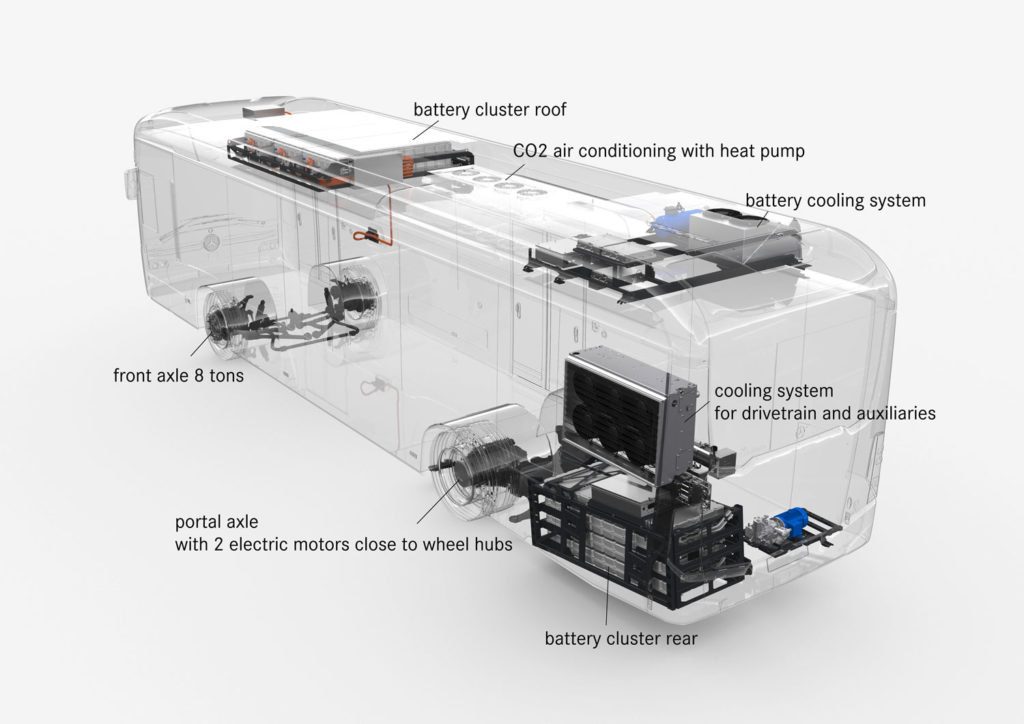 Customer requirements can also specify another two or four modules on the roof. Each module comprises 15 cell modules and a control unit for monitoring and balancing the charger. Each separate cell module houses 12 cells, each with a capacity of 37Ah.
Customer requirements can also specify another two or four modules on the roof. Each module comprises 15 cell modules and a control unit for monitoring and balancing the charger. Each separate cell module houses 12 cells, each with a capacity of 37Ah.
The eCitaro’s charging technology can also be tailored to suit application requirements. For the start of series production, plug-in charging is specified, and the vehicle includes a Combo-2 socket above the front wheel arch. If opportunity charging is required for range extension, the eCitaro will offer pantograph capabilities in the future – an option which will be phased in after the start of series production.
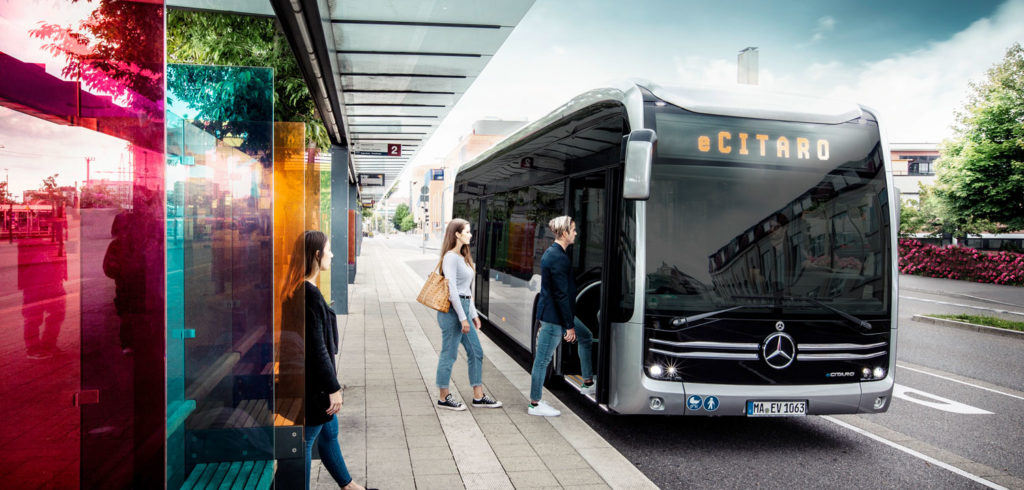 The vehicle will also be able to generate electrical energy through recovery – the two electric motors at the wheel hubs of the drive axle can act as alternators during braking.
The vehicle will also be able to generate electrical energy through recovery – the two electric motors at the wheel hubs of the drive axle can act as alternators during braking.
The eCitaro’s thermal management system increases the vehicle’s efficiency significantly when compared with the ICE variant, extending the vehicle’s potential range.
The eCitaro also features a separate battery cooler mounted on the roof, which ensures the batteries remain at the optimal operating temperature. The passenger compartment is heated by an energy efficient heat pump, and even temperature distribution is ensured by sidewall fan heaters. A fuel-powered auxiliary heater can be added for vehicles operating in extreme temperatures.
In summer conditions, Mercedes-Benz’s stated range for the eCitaro is 150km. In ideal conditions, the OEM claims the vehicle can achieve 250km without the need for opportunity charging.
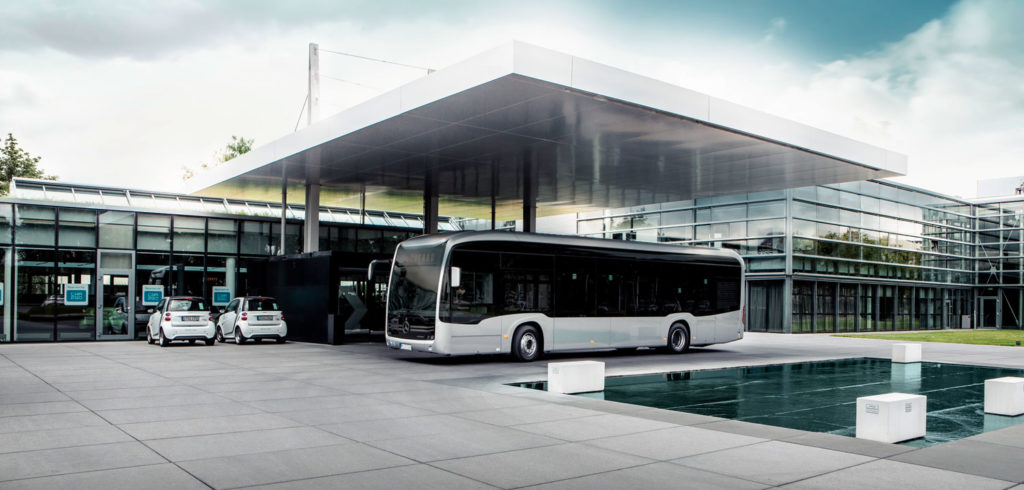 The eCitaro is manufactured at the company’s bus plant in Mannheim, Germany, on the production line for the conventionally powered Citaro. Key components such as the drive axle and the electrohydraulic steering system are already proven in existing applications. The design of the roof, with integrated heavy-duty rails for the batteries, is derived from the system used for the gas tanks of the Citaro NGT.
The eCitaro is manufactured at the company’s bus plant in Mannheim, Germany, on the production line for the conventionally powered Citaro. Key components such as the drive axle and the electrohydraulic steering system are already proven in existing applications. The design of the roof, with integrated heavy-duty rails for the batteries, is derived from the system used for the gas tanks of the Citaro NGT.
By the start of series production, the all-electric eCitaro will already have been through a comprehensive testing program. All components were tested individually as well as in interaction with others, on test benches and in the bus.
Mercedes-Benz has tested the eCitaro at temperatures below -15°C at the Arctic Circle and at more than 30°C in the summer heat of Spain. Winter testing also included road tests on slippery roadways to test dynamic handling control systems and energy recovery.
Summer testing took place in city traffic conditions and on steep climbs and descents in the Spanish Sierra Nevada. The test program also included rough-road and endurance testing. All in all, a dozen or so prototypes were put through their paces.



